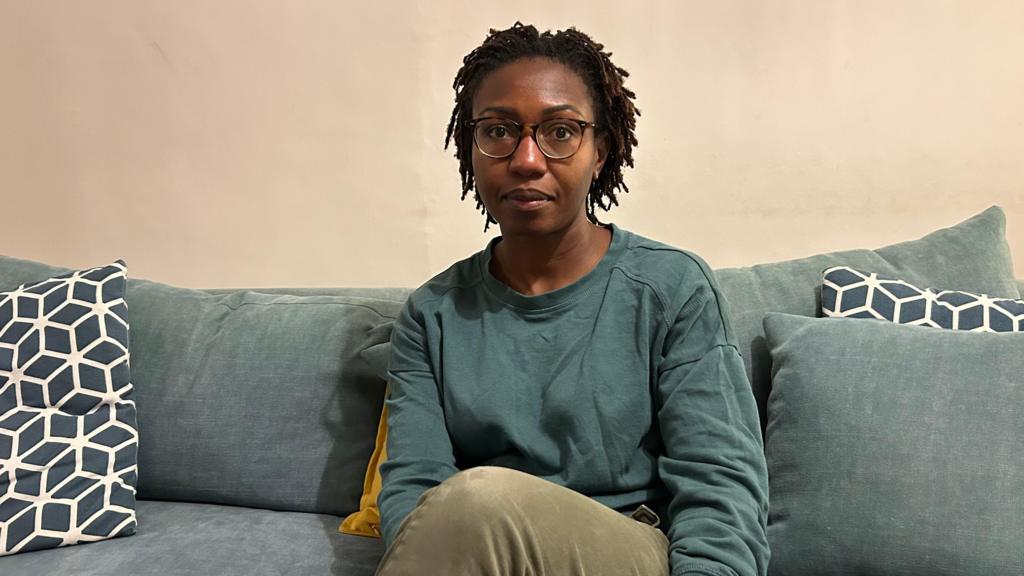New data from the Office for National Statistics (ONS) reveals that mothers in England experience a “substantial and long-lasting reduction” in their earnings following childbirth.
The ONS found that, on average, mothers’ earnings decrease by £1,051 per month five years after the birth of their first child, when compared to their salary one year prior to the birth.
The study also indicates that mothers’ earnings continue to be negatively impacted after the arrival of subsequent children.
Rachel Grocott, chief executive of the campaign group Pregnant Then Screwed, described the findings as “completely abhorrent,” emphasizing that the “motherhood penalty” is “not just unfair – it’s avoidable.”
In a novel dataset, the ONS examined the earnings and employment status of mothers following the birth of their first, second, and third children over an eight-year period, spanning from April 2014 to December 2022.
The data indicates that mothers earn £313 less per month, on average, five years after the birth of their second child, and £689 less per month five years after the birth of their third child, compared to their salary one year prior to each birth.
The study suggests that mothers experience the “maximum losses” in earnings during the first year after childbirth, coinciding with a higher likelihood of taking extended parental leave compared to fathers.
The total loss in earnings over five years, when compared with a mother’s earnings in the year before childbirth, was significant.
Femilola Miller, a London resident and mother of three children aged seven, five, and three, shared her personal experience.
Prior to starting a family, she and her husband, David, earned similar salaries. However, David now earns £55,000 more per year than she does.
While both she and her husband took several months of leave after each child’s birth, she noted that “every time my husband went back to work, he got a promotion.”
Miller stated that “Mothers are not compensated even if they return to work full time and are dedicated to their career.”
She believes that the motherhood penalty is “engrained in society” and that some individuals perpetuate stereotypes “without even realizing,” recalling instances where people questioned her about her return to work after having children.
“It was not even a question about what was going to happen to David’s career,” she noted.
“I had a career before I had children and I want to carry on working full-time.”
Despite a slow reduction in the gender pay gap in the UK, women working full time still earn 7% less than men.
Joeli Brearley, founder of Pregnant Then Screwed, attributed the motherhood penalty to “a perfect storm of bias, outdated legislation and cultural norms.”
She further stated that “the vast majority” of the gender pay gap is linked to the motherhood penalty, which stems from factors such as:
The government has introduced 30 hours a week of funded childcare for working parents and is undertaking a review of parental leave.
New laws, effective in England, Wales, and Scotland last year, offer women greater protection against redundancy during pregnancy or maternity leave.
However, research from Pregnant then Screwed and Women in Data suggests that up to 74,000 new or expectant mothers lose their jobs annually due to pregnancy and maternity discrimination.
Evie, a 33-year-old from Newcastle, expressed that she feels her career is “on hold” until her daughter starts school.
Evie initially reduced her working hours when her three-year-old daughter, Ellie, was born, but now works 35 hours a week for the NHS.
She aspires to retrain as a therapist, but this would require her to relinquish her ability to work from home, which is currently essential for her childcare arrangements.
She described motherhood as “the best thing that’s happened to me, but career-wise, it has been a punishment.”
“You’re expected to be a parent like you don’t work, but work like you haven’t got kids. You can’t win.”
Emma Potts, manager of Market Place Cafe in Stoke-on-Trent, acknowledged that accommodating flexible working arrangements, part-time hours, or maternity cover presents “a really difficult balance” for small businesses like hers.
“We always try to be as supportive as possible, but the reality is that in a small team, flexibility is much harder to manage.”
She stated that if staff members were to reduce their hours to part-time, “it would cause real issues.”
“Ultimately, smaller businesses like ours don’t have the luxury of large teams or spare capacity.”
“Every shift matters, every deadline matters, and every absence makes a difference.”
Katie Guild, co-founder of Nugget Savings, a business specializing in financial planning for new and expectant parents, emphasized that the financial impact of having children can be “shocking,” but that parents can take several steps to mitigate this.
This includes verifying benefit eligibility and ensuring that employers continue to contribute to pensions based on pre-maternity leave salaries.
“Unfortunately, a lot of what we deal with is mothers having difficult situations with their employers and not knowing whether they have a leg to stand on legally,” she said.
“Knowing your rights is really crucial.”
Sheffield Council says the money will come from reserves and it is not at risk of bankrupcy.
Some parents are quitting the group chats to escape the frenzy of “constant notifications”.
Divorce in later life is becoming more common – and scientists are beginning to explore the surprisingly deep impact this can have on adult children and their relationships.
A Gloucestershire councillor warns cuts could leave vulnerable children without the help they need.
Tom Price says the pictures of him and his wife celebrating the return to school resonate with parents.

